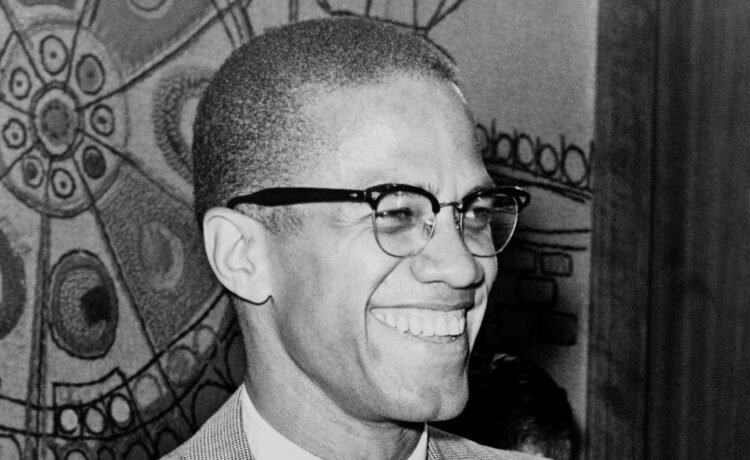(RNS) — Sixty years ago today, Malcolm X (el-Hajj Malik el-Shabazz) was gunned down in the Audubon Ballroom in Harlem, New York, at the age of 39. He had long known death was coming.
He had seen the threats, the surveillance, the isolation and the betrayals. He knew that for speaking truth in America — real, unfiltered, unflinching truth — there was always a price to be paid.
But Malcolm X was a man who could never be silenced. Not in life. Not in death. And not today, when his words ring truer than ever.
In 1964, he stood before the world and warned that the United States was gaslighting Black people at home while doing the same to oppressed people across the globe. He saw beyond America’s carefully crafted image of itself as the land of the free. He exposed the contradiction between its rhetoric of democracy and its practice of imperialism. He called out its role in Vietnam, its support of colonialism in Africa and its hypocrisy in Palestine, where it backed Israel’s settler-colonial project while pretending to stand for human rights.
And for that, so many in power wanted him dead, including the FBI, whose agents were in the Audubon Ballroom on Feb. 21, 1965.
Malcolm X’s transformation from Malcolm Little to el-Hajj Malik el-Shabazz was a direct challenge to the American lie. A system built on white supremacy could tolerate a Black man as a preacher, a performer, a politician — even a protester — as long as he stayed within the boundaries set for him. But Malcolm X refused to be contained.
He refused to operate within an acceptable civil rights framework to the power structure. When he called out the Democratic Party as the “fox” and the Republican Party as the “wolf,” he exposed the bipartisan nature of American racism. And when he took the struggle beyond the borders of the United States, connecting it to global liberation movements, he made himself an enemy of not just the American state, but the entire Western order.
Malcolm X didn’t just want civil rights. He wanted human rights. He didn’t just want integration into a burning house. He wanted the fire put out. And for that, he had to be erased.
He understood something that remains painfully relevant today: The American empire does not just oppress — it manipulates. It does not just colonize — it gaslights.
He saw how white liberals would march in Selma but refuse to dismantle the economic systems that kept Black people poor. He saw how America called itself a defender of freedom while massacring Vietnamese civilians in the name of anti-communism. And he saw how Israel — armed and funded by the U.S. — was doing to Palestinians what white settlers had done to Native Americans.
Nothing has changed.
Today, America tells Black people they have every right to protest — until they actually do. It tells Palestinians to resist peacefully — then punishes them when they do. It condemns apartheid in South Africa but bankrolls it in Israel. It tells the world it is fighting for democracy while propping up dictators who serve its interests.
Malcolm X was not just right about the injustices of his time. He was right about the pattern. He warned us that this system does not just lie, it demands that we believe the lie.
Malcolm X’s greatest threat to American power was not his militancy, nor his charisma, nor even his organizational strength. It was his internationalism.
When he left the Nation of Islam and embraced the faith of a billion Muslims, he also embraced a broader vision of struggle and humanity. He built bridges with revolutionaries across Africa, Asia and the Middle East. He called for Black people in America to take their case to the United Nations — not as second-class citizens begging for rights, but as a colonized people demanding justice.
He saw the Palestinian struggle as part of the same fight, which is why he visited Gaza in 1964 to express his support for a Palestinian people disappearing under an expanding Israeli state. He knew that Vietnam was not separate from Harlem, preceding Martin Luther King Jr. in taking an incredibly unpopular stance in America at the time.
Malcolm X was decades ahead of his time.
But Malcolm X is not history. He is now.
He is every human being of conscience who refuses to be silent about state violence. He is every Palestinian child who refuses to accept occupation as normal. He is every Sudanese protester demanding that the world put #EyesOnSudan instead of looking away.
Malcolm X was a man who could never be silenced. And today, as Gaza burns, as Sudan bleeds, as America continues its global empire under a mask of morality, his words remain an open indictment against a system that still hasn’t changed.
As Medgar Evers famously said, “You can kill a man, but you can’t kill an idea.”
Sixty years later, Malcolm X is still very much an idea that is alive and beating in the hearts of free people around the world.















